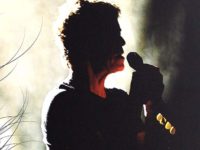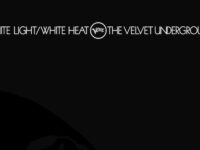In my youngest music-listening years, Lou Reed’s junkie hipster milieu couldn’t have been further from mine, and his poetry was just as otherworldly. It wasn’t just that I’d never lived it. I could scarcely imagine it.
That planet would crash into mine, throughout the 1970s and into the 1980s, with only intermittent force. I had, to that point, never visited New York City, had never seen the things he’d seen. It remained mythical, beyond my sphere. I’d come across his records, either with the Velvet Underground or as a solo artist, all the time: In record stores, in friends’ collections or as part of some rock-crit manifesto or another. And it would be like any other place you’d never been — an idea, nothing you could touch. Pieced together from anecdotes, and collective knowledge.
Then New York, and this song, came out. For me, it wasn’t the last best thing Lou Reed ever did — though I’ve heard the album described that way. (I actually am more apt to listen to Song for Drella, his emotional 1990 collaboration with John Cale in tribute to Andy Warhol; 1973’s dark and mystifying Berlin,, which — if I’m being honest — still sometimes sounds like a message from Mars to me; or 1992’s Magic and Loss, an utterly shattering look back.) No, “Dirty Blvd.” was the first best thing.
It stiffed, of course, on the Billboard Top 100, bubbling up instead through college and album-rock radio where “Dirty Blvd.” eventually would earn a four-week run at the top of the newly created Modern Rock Tracks list. A still sadly topical track focusing on the differences between our have and have nots, the song remains perhaps this album’s most transcendent moment because it’s less specific than the rest of New York — which then had a ripped-from-the-headlines feel, but now (with its references to all-but-forgotten period figures like Bernard Goetz and Morton Downey) can’t help but sometimes seem dated.
And, let’s face it, by early 1989, the world desperately needed this track — the music world, the world world, and most particularly my world, all of it. Performing with nothing more than the oldest tools of his trade (two guitars, a bass and the drums), Lou Reed made a record that sounded like almost nothing else out there. Maybe, in the way it looked outward, like nothing else he’d ever done either. (It brought me, with its Belmonts-worthy coda, back around to Dion too — but that’s another discussion.) You could argue that Reed helped nudge the 1990s toward a return to mainstream rock, right here, but also that “Dirty Blvd.” put a period on every stupid-ass thing the 1980s had become. (Of course, Lou Reed’s Statue of Bigotry still stands, but that’s another discussion, too.) It also was the moment when the riddle of Lou Reed finally began to make sense to me.
Songs can be like that, working as a doorway toward another place. Sunday, as news of Reed’s untimely passing reached me, I returned to “Dirty Blvd.” — and it opened up into a room filled with things I’d only discovered long after everyone else. I’m glad I did.
- How Deep Cuts on ‘Music From Big Pink’ Underscore the Band’s Triumph - July 31, 2023
- How ‘Islands’ Signaled the Sad End of the Band’s Five-Man Edition - March 15, 2022
- The Band’s ‘Christmas Must Be Tonight’ Remains an Unjustly Overlooked Holiday Classic - December 25, 2016




